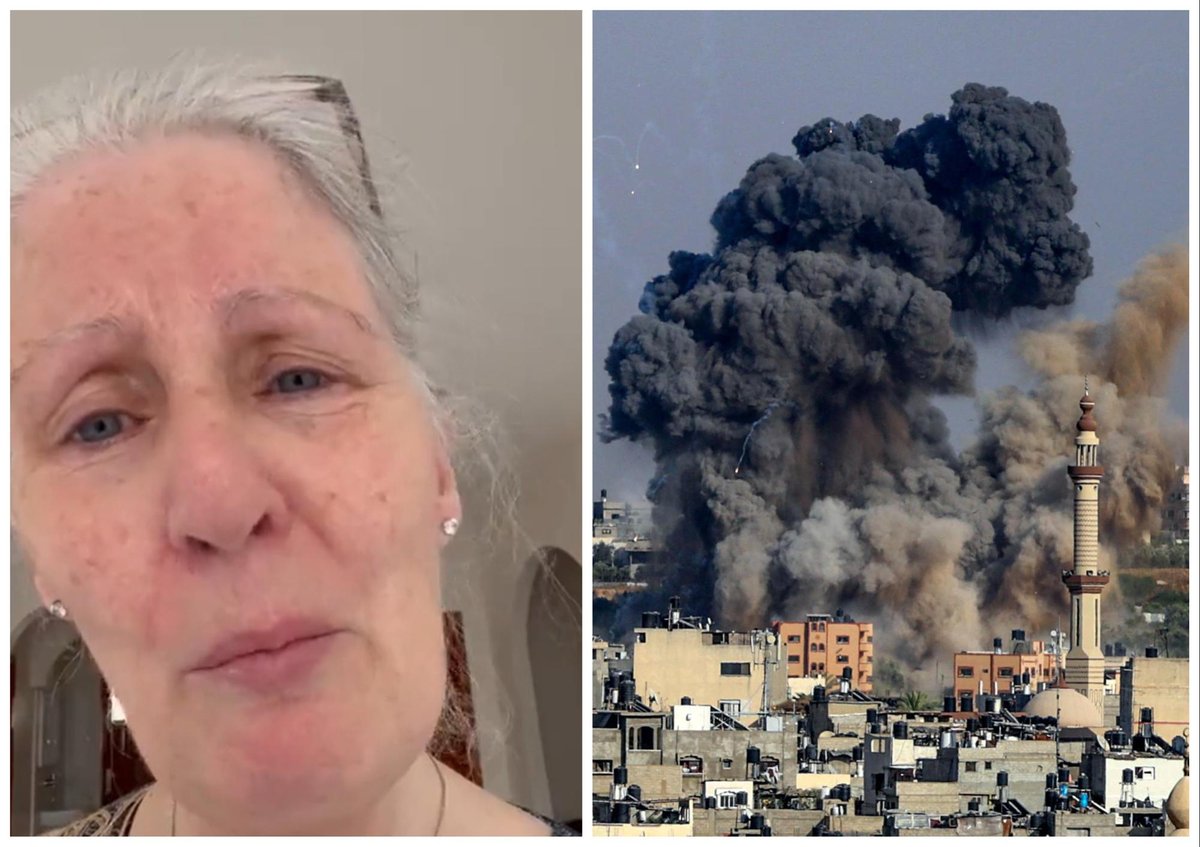
Nadia El-Nakla, wife of Scotland’s First Minister Humza Yousef, has said her family are among those trapped in Gaza in desperate conditions with only salt water to drink. Writing for the Guardian, she has called for a ceasefire to let aid in and people out.
Two weeks ago, I had not heard of Telegram. Now the messaging app is one of the only ways I have to find out if my family are alive or dead. Across Gaza, people have only their phones with which to communicate the brutal consequences of Israel’s bombardment and the humanitarian crisis that is unfolding. My own parents – who were visiting from their home, in Dundee – are trapped in the city of Deir al-Balah along with my brother, a doctor battling to care for injured civilians with dwindling medical supplies.
Without international journalists reporting from the territory, and with communications cut, there is an effective news blackout. So Gazans have created messaging groups city by city, street by street. One night a message appeared that there had been an explosion on the street where my family live. My aunt responded, asking what the family name was. How can I describe those moments when you are waiting for the reply? Then it comes back that it was our neighbour’s home that was hit. And then that horrible feeling: you’re relieved it’s not your family, but then you’re devastated that it’s happened to another family.
I was brought up in Dundee by a Scottish mother and a Palestinian father. We are Muslim; my father always told me that in faith the Jewish community were my cousins. We are that close. To have this narrative that the current conflict is Muslims against Jews, or Palestinian families against Israeli families, runs completely counter to that.
My heart broke for all those families affected by the Hamas attacks and for all those people who were scared for their lives. As I watched, I also knew in the back of my mind that the repercussions would be catastrophic: so there was my heartbreak for what was happening, and heartbreak for what was to come.
People in Israel and Palestine want peace. If we keep fighting hatred with hatred, it takes us to a really dangerous situation, not just for that region but globally. And ultimately, it is the people who will suffer. I believe Israeli and Palestinian families want their children to grow up in a peaceful, safe country with a two-state solution.
I would really like to hear more from the UK government about the genuine facilitation of peace: not picking a side by saying “I stand with Israel”, which then encourages a carte-blanche approach to war against a people who are already under occupation, under siege. It is irresponsible, and it enables collective punishment.
Three things are needed immediately: facilitating a ceasefire, the opening of humanitarian corridors, and to let out foreign nationals who, like my parents, can seek safety elsewhere. Gazans are on their knees, with no medical supplies left, and they are running out of food.
My own family have only salty water left to drink. If they are ordered to move south by the Israeli military, I don’t know where they will go. There’s my 93-year-old grandmother, who uses a wheelchair, and roads that are little more than dust. There’s my eight-week-old nephew. How can you keep a baby outside in the sun?
As a child, I would visit my father’s family in Gaza every summer. I would cry and refuse to eat at the end of these trips because I never wanted to leave. Being Scottish and Palestinian, I connect with both identities. That’s why I still dance all the time and listen to Arabic music, and why I wore Palestinian dress at my husband’s swearing-in at the Scottish parliament when he became first minister.
But for a long time I’ve felt that Palestinian identity has been conflated with the idea that we’re barbaric and not relatable. My fear is that our identity could be lost for ever, that Palestinians are being eradicated from history, first under the blockade that has been going on for 17 years and now the bombardment. I don’t know if Gaza will exist any more. The future feels bleak, and I find it hard to think past the immediate safety of people living there now.
At first I was optimistic that my parents would get out and aid would get in; but sadly, slowly, my hope is waning. I’m trying to hold on to hope and trust in human beings to do what is right. And what is right is to give human beings what they need to survive, but also to follow international law.
We have international law for a reason, and you can’t condemn one group for not following it and then allow another one to have complete disregard for it. Sometimes, world leaders can make it really complicated, but to me it feels simple: have a ceasefire, and allow the aid in and people out.
![[Irish Republican News]](https://republican-news.org/graphics/title_gifs/rn.gif)
![[Irish Republican News]](https://republican-news.org/graphics/title_gifs/harp.gif)

